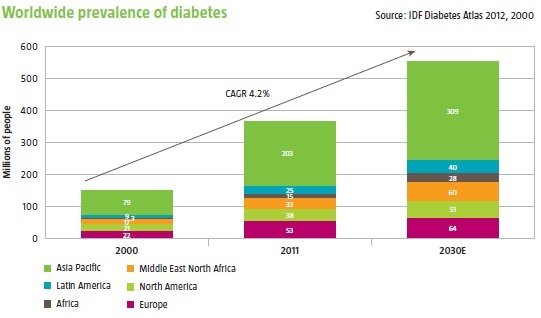Last Updated on September 7, 2024 by Alexander Sennuga

Find below detailed and unbiased information about the diabetes cure.
Diabetes occurs when the body is unable to properly regulate blood sugar levels, leading to various complications if left unmanaged. While there is currently no known cure for diabetes, there are several treatment options available to help individuals manage their condition and lead a healthy life. In this article, we will explore natural remedies, lifestyle modifications, and medical interventions that can effectively control diabetes symptoms and improve overall well-being.
It’s specifically intended for diabetics and their loved ones for one major reason. They will now be in a position to make an informed decision to tackle this unwanted medical condition.
Please read on.
High blood sugar is a subject being discussed here and there due to its importance to human health.
Diabetes Cure Facts

Diabetes is a disease that is currently threatening mankind worldwide. Its occurrence is rising despite efforts to arrest the trend.
The worldwide prediction of diabetes prevalence by the year 2030 from the above chart is frightening.
It is a fact that untreated diabetes can lead to serious complications. Examples are blindness and other forms of disabilities.
Praise to the medical scientists, as they’re not abandoning their efforts to find a cure.
Thumbs up also to those who are finding alternative methods to reverse the disease.
Rigid adherence to prescribed medication is fading.
In the medical science quarter, the popular opinion is that there’s no cure for diabetes right now.
But in alternative remedy quarters like the natural method or homeopathy, there are widespread claims that diabetes is curable.
Any in-depth discussion about diabetes cures will continue to gain serious attention. This will be the case, especially for those hungry for the answer to their diabetes problem.
This blog will attempt to provide helpful information about that desire.
Understanding Diabetes: Types and Causes

Diabetes is a complex metabolic disorder characterized by elevated blood sugar levels. To comprehend potential cures and treatments, it’s essential to understand the different types of diabetes:
- Type 1 Diabetes:
- Caused by an autoimmune reaction that destroys insulin-producing cells in the pancreas
- Typically diagnosed in childhood or early adulthood
- Requires lifelong insulin therapy
- Type 2 Diabetes:
- It develops when the body becomes resistant to insulin or doesn’t produce enough
- Often linked to lifestyle factors such as obesity and lack of physical activity
- It can be managed through lifestyle changes, medication, and sometimes insulin therapy
- Gestational Diabetes:
- Occurs during pregnancy
- Usually resolves after childbirth but increases the risk of developing type 2 diabetes later in life
The Quest for a Diabetes Cure

While a definitive diabetes cure remains elusive, researchers are making significant strides in developing potential treatments that could lead to long-term remission or even a cure:
- Beta Cell Replacement Therapy:
- Aims to restore insulin production by transplanting healthy beta cells
- Shows promise for type 1 diabetes patients
- Smart Insulin Development:
- The research focused on creating insulin that activates only when blood sugar levels rise
- Could revolutionize diabetes treatment by reducing the risk of hypoglycemia
- Immunotherapy:
- Targets the immune system to prevent the destruction of insulin-producing cells
- Potential game-changer for type 1 diabetes prevention and treatment
- Artificial Pancreas Technology:
- Combines continuous glucose monitoring with automated insulin delivery
- Improves blood sugar control and quality of life for diabetes patients
Innovative Diabetes Treatments and Management Strategies

While the search for a cure continues, numerous effective diabetes treatments and management strategies have emerged:
- Lifestyle Modifications:
- Adopting a balanced diet low in refined carbohydrates and high in fiber
- Regular physical activity to improve insulin sensitivity
- Stress management techniques like meditation and yoga
- Personalized Medication Plans:
- Tailored combination of oral medications and injectable therapies
- Newer drug classes with improved efficacy and fewer side effects
- Continuous Glucose Monitoring (CGM):
- Provides real-time blood sugar data, allowing for better disease management
- Helps prevent complications and improves overall glycemic control
- Bariatric Surgery:
- Effective for obese individuals with type 2 diabetes
- Can lead to significant weight loss and improved blood sugar control
- Stem Cell Therapy:
- Promising research in using stem cells to regenerate insulin-producing cells
- Potential future treatment for both type 1 and type 2 diabetes
Alternative Approaches to Diabetes Management

In addition to conventional treatments, many individuals explore alternative therapies to support their diabetes management:
- Herbal Supplements:
- Some herbs, such as cinnamon and bitter melon, may help lower blood sugar levels
- Always consult with a healthcare provider before trying any supplements
- Acupuncture:
- May help improve insulin sensitivity and reduce diabetes-related complications
- More research is needed to confirm its effectiveness
- Mindfulness and Meditation:
- Can reduce stress and improve overall well-being
- May indirectly help with blood sugar control by reducing stress hormones
- Dietary Approaches:
- Plant-based diets and intermittent fasting show promise in improving insulin sensitivity
- Personalized nutrition plans based on individual needs and preferences
Conclusion
- There is a strong prediction that the global prevalence of diabetes is rising.
- The forecast shows that 550 million people on Earth will have diabetes by the year 2030.
- The general opinion now is that there is no medically approved diabetes cure right now.
- There are advances in medical research and trials to find a cure. Based on successes in curing diabetes Type 1 in mice, we seem to be closing in on a cure in humans.
- Outside medical science quarters, there are widespread claims that alternative remedies can cure diabetes.
- YouTube videos are full of recommendations using ingredients available in the kitchen and garden.
- There are also numerous pieces of advice on dietary and lifestyle changes that have helped Diabetics reverse the disease.
Given all this in-depth information, every Diabetic has two choices.
One choice is to use medical prescriptions to manage or control diabetes. And then wait until a medical cure is found.
I hope the cost of this type would be within the reach of everyone.
The other choice is to approach alternative remedies with an open mind.
Then try one or the other remedies until the one that works well is found.
Let Me Tell You My Diabetes Cure Intentions
My name is Alexander.
I am passionate about health and fitness solution blogging.
My first focus is on finding natural and permanent solutions to diabetes.
But, in the future, issues with other common diseases may receive my attention.
The major emphasis here will then be to do thorough research into the usual causes of diseases in our bodies. The best practices required to manage and reverse diseases can then emerge.
What You Can Expect From my Blog
- Updated information about alternative and natural methods to manage and/or reverse diabetes.
- Request you for feedback or an opinion on better ideas than the ones I have shared.
I may promote products from merchants that would be of help. By doing this, I can earn affiliate commissions.
I guess you will agree with me that this is fair!
I am sure you’ll join millions worldwide eager to find better solutions.
It is no longer necessary to keep clinging only to the unpopular use of medical prescriptions.
You’ve come to the proper place for help to achieve that!
Bottom line: We need a diabetes cure that works to keep the disease away from mankind.
Very Important: Please note that all information provided on this site is for educational purposes only. They ought not to be used for medical advice, diagnosis, or treatment. So, please consult your doctor and/or registered dietitian or nutritionist for any professional advice before applying any of the information on your health issues.

